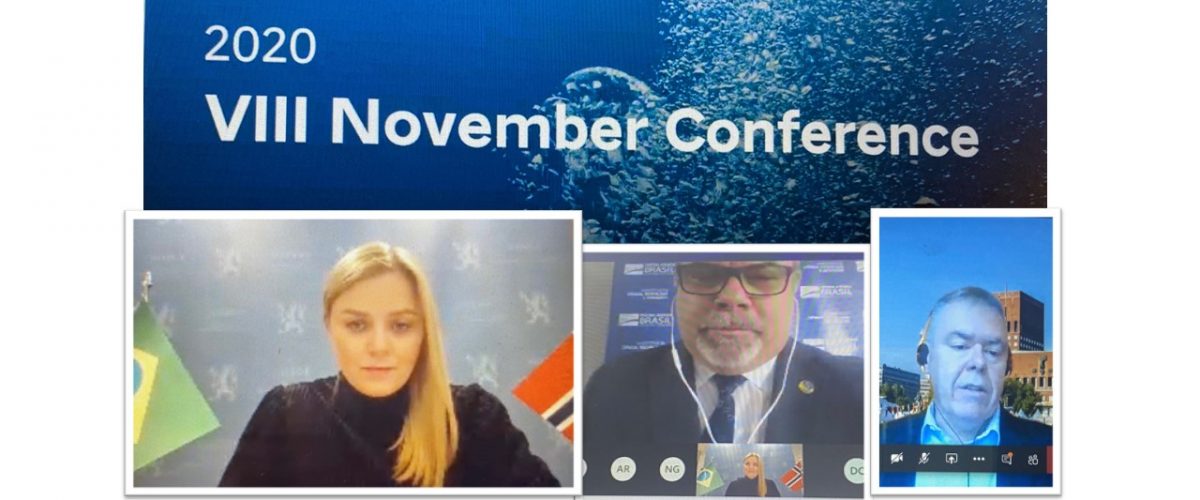Norway´s Minister of Petroleum and Energy, Tina Bru was one of the keynote speakers in the plenary session of the VIII November Conference on November 9, 2020.
This year, the conference, which gathers researchers and academia from Norway and Brazil every November since 2013, is all digital, due to the covid-19 pandemic. The program features a total of 10 events, addressing topics like decommissioning, IOR, flow assurance, digitalization, solar and wind energy (See full program here).
The original focus of the conference was oil and gas research, but in 2019, the scope was expanded to cover energy research more broadly, with a special focus on the links between fossil energy and renewable energy.
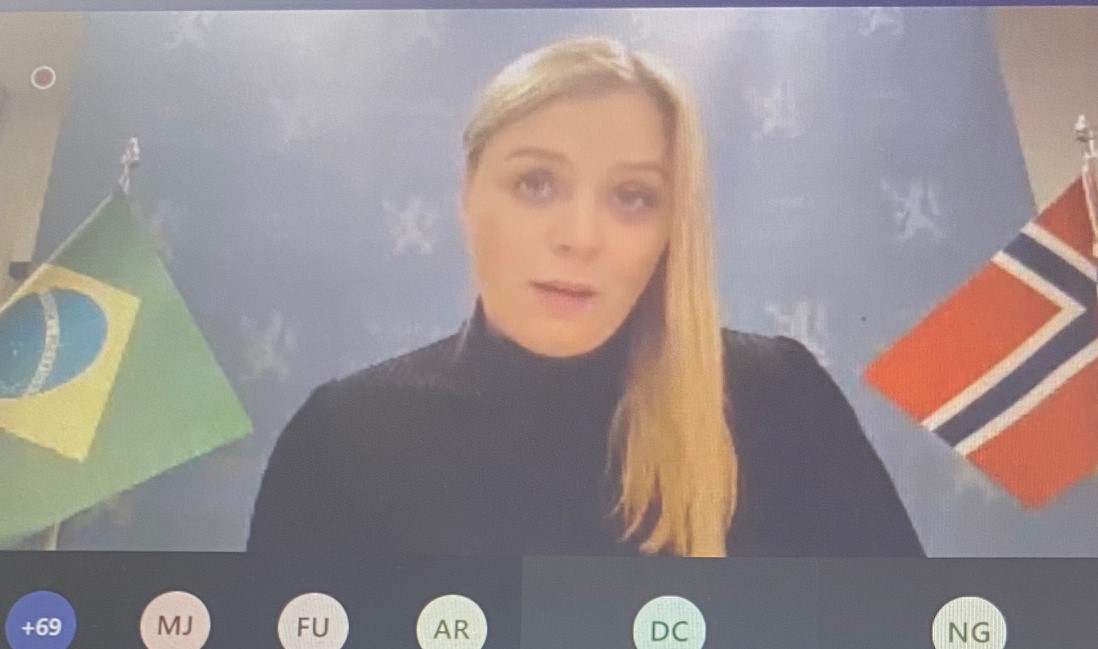 “Our two countries are united in the effort to tackle the double challenge of producing energy to sustain growth as well as reducing greenhouse gas emissions. Our long-term partnership has been strengthened over the last decade, with new discoveries in Brazil, and there has been a boom in Norwegian investments and presence in Brazil. Since 2013, the November Conferences has been a main forum for developing collaboration and partnerships where we seek new solutions to common challenges. The most tangible outcome is the two joint calls for research projects, and it is a great pleasure for me to announce that The Research Council of Norway and FINEP have decided to organize a third, joint call”, Minister Bru said in her speech.
“Our two countries are united in the effort to tackle the double challenge of producing energy to sustain growth as well as reducing greenhouse gas emissions. Our long-term partnership has been strengthened over the last decade, with new discoveries in Brazil, and there has been a boom in Norwegian investments and presence in Brazil. Since 2013, the November Conferences has been a main forum for developing collaboration and partnerships where we seek new solutions to common challenges. The most tangible outcome is the two joint calls for research projects, and it is a great pleasure for me to announce that The Research Council of Norway and FINEP have decided to organize a third, joint call”, Minister Bru said in her speech.
Secretary Marcelo Meirelles delivered the introductory remarks to the conference on behalf of the Brazilian Ministry of Science, Technology and Innovation, and focused on the importance of transforming technological knowledge into innovation.
The current landscape
The conference brings together researchers and industrial practitioners from Norway and Brazil to discuss and develop collaboration within energy research and development. Connections made at earlier conferences have led to fruitful cooperation on many levels.
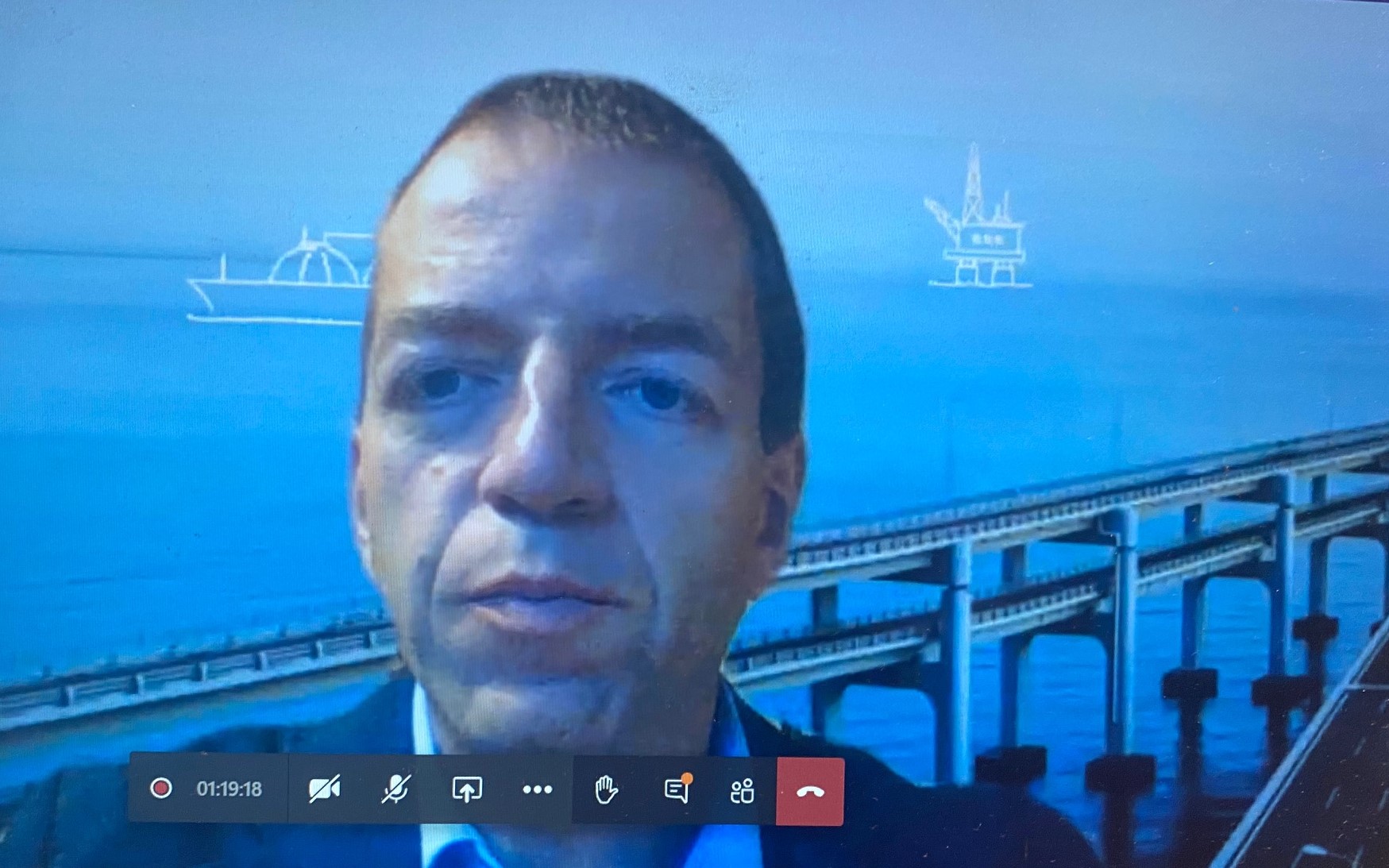 In the plenary session on November 9, a session was dedicated to the Industrial Research Landscape, and, Ruben Schulkes of Equinor and Sverre Alvik, of DNV GL were invited to speak.
In the plenary session on November 9, a session was dedicated to the Industrial Research Landscape, and, Ruben Schulkes of Equinor and Sverre Alvik, of DNV GL were invited to speak.
“Significant changes are happening and energy systems are transitioning. Prepare to be surprised. But the low carbon challenge creates a lot of opportunities as well, and we as a company want to be a part of this opportunity space. Digitalization and automation will become an increasing part of the production of energy in the future, and we cannot do it without extensive collaboration going forward”, said Ruben Schulkes, Manager at the Research and Technology Center Rio at Equinor.
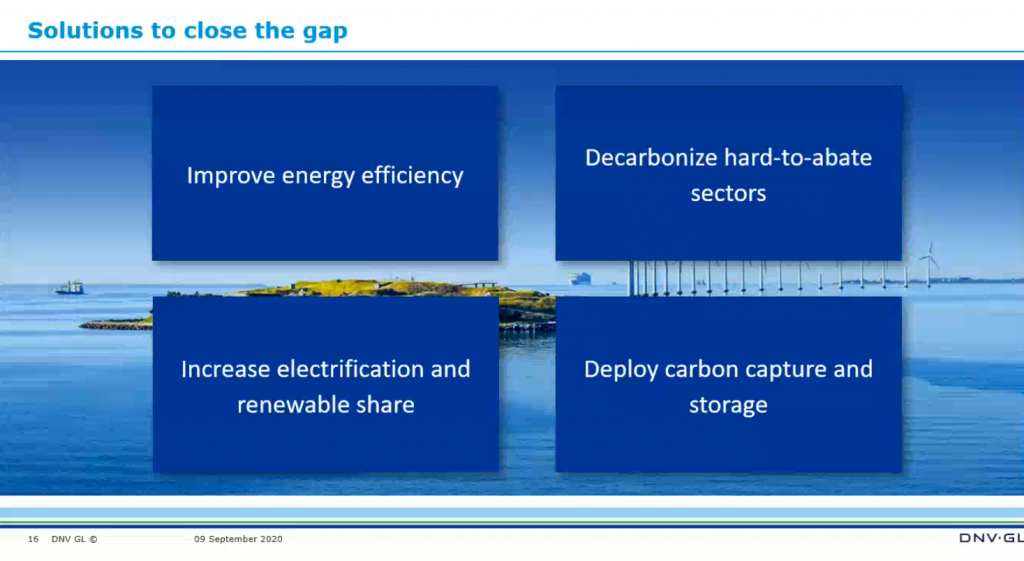 Sverre Alvik presented the DNV GL Energy Transition Outlook 2020 to the plenary session. Mr. Alvik is the Energy Transition Program Director, and the highlights
Sverre Alvik presented the DNV GL Energy Transition Outlook 2020 to the plenary session. Mr. Alvik is the Energy Transition Program Director, and the highlights
“The covid pandemic has placed the peak of energy and also in oil demand behind us, and the global energy demanded fell by 8 percent. This means there is a new risk picture for the oil industry in Brazil. Existing technologies can deliver on the 1.5 degree ambition but stronger policies are needed and CCS is important”, Mr. Alvik said.
New, joint call
In 2013, the two countries signed an agreement called BN21, on increased collaboration within research, development and innovation. Two joint call and funding of common projects demonstrate that the cooperation is bearing fruit.
The funding organizations of the conference, represented by Fridtjof Unander, Executive Director of Research Council of Norway and Alberto Pinheiro Dantas, Innovation Director at Finep, also made presentations during the event on November 9, 2020, and together they detailed the announcement of the third joint call for research projects.
“Brazil is a priority country for research collaboration for Norwegian players, and the 3rd joint call will take place in 2021, and will be co-funded by the RCN Petromaks 2 program and Finep. It will be aimed at the industrial sector”, Mr. Unander said.
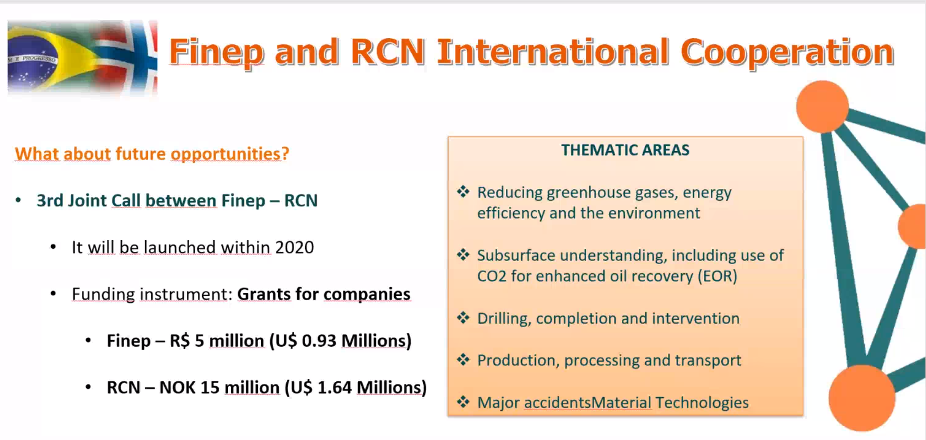 “Finep will contribute with 5 million reais and RCN with 15 million NOK. Several thematic areas have been defined as focus areas such as reducing GHG emissions, drilling, completion and intervention, material technologies, among others”, Mr. Dantas said
“Finep will contribute with 5 million reais and RCN with 15 million NOK. Several thematic areas have been defined as focus areas such as reducing GHG emissions, drilling, completion and intervention, material technologies, among others”, Mr. Dantas said
Case studies
In a separate session, the involved companies shared experiences from the first Finep-RCN joint call:
4Subsea and Inoceano were awarded funding of a a project on a flexible pipe pressure liner life extension tool, and Øystein Kanestrøm from 4Subsea shared insights from the development of the FlexLinerLife.
Intissar Keghouche, of StormGeo, talked about a system for real-time oil spill monitoring and forecasting, developed with the Norwegian-Brazilian funding.
NORCE and Engineering Simulation and Scientific Software have looked into modelling of well multiphase flow for increased oil recovery, and Ying Guo from NORCE presented the main results.
Mark A. Bokenfohr, representing Transmark Subsea, shared experiences from the WISUB project which has done research on data transfer interface for subsea use.
:


